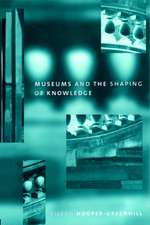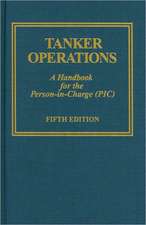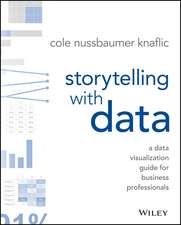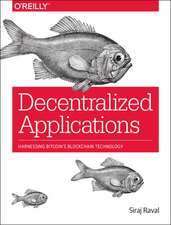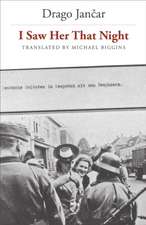Julia Kristeva (RLE Feminist Theory): Routledge Library Editions: Feminist Theory
Autor John Lechteen Limba Engleză Paperback – 3 apr 2014
Essential reading for all those who wish to extend their understanding of this important thinker, this first full-length study of Kristeva’s work will be of interest to students of literature, sociology, critical theory, feminist theory, French studies and psychoanalysis.
| Toate formatele și edițiile | Preț | Express |
|---|---|---|
| Paperback (1) | 298.01 lei 6-8 săpt. | |
| Taylor & Francis – 3 apr 2014 | 298.01 lei 6-8 săpt. | |
| Hardback (1) | 739.56 lei 6-8 săpt. | |
| Taylor & Francis – 11 oct 2012 | 739.56 lei 6-8 săpt. |
Din seria Routledge Library Editions: Feminist Theory
- 36%
 Preț: 626.41 lei
Preț: 626.41 lei - 37%
 Preț: 622.99 lei
Preț: 622.99 lei -
 Preț: 411.42 lei
Preț: 411.42 lei -
 Preț: 483.55 lei
Preț: 483.55 lei - 34%
 Preț: 767.38 lei
Preț: 767.38 lei - 33%
 Preț: 532.10 lei
Preț: 532.10 lei - 34%
 Preț: 682.29 lei
Preț: 682.29 lei - 18%
 Preț: 782.30 lei
Preț: 782.30 lei - 34%
 Preț: 625.33 lei
Preț: 625.33 lei - 37%
 Preț: 623.71 lei
Preț: 623.71 lei - 34%
 Preț: 825.25 lei
Preț: 825.25 lei - 34%
 Preț: 626.94 lei
Preț: 626.94 lei - 34%
 Preț: 767.20 lei
Preț: 767.20 lei - 34%
 Preț: 626.59 lei
Preț: 626.59 lei -
 Preț: 349.58 lei
Preț: 349.58 lei - 36%
 Preț: 827.76 lei
Preț: 827.76 lei -
 Preț: 413.33 lei
Preț: 413.33 lei - 22%
 Preț: 326.81 lei
Preț: 326.81 lei - 33%
 Preț: 771.88 lei
Preț: 771.88 lei -
 Preț: 415.29 lei
Preț: 415.29 lei -
 Preț: 414.91 lei
Preț: 414.91 lei - 38%
 Preț: 769.00 lei
Preț: 769.00 lei - 34%
 Preț: 626.22 lei
Preț: 626.22 lei - 34%
 Preț: 625.68 lei
Preț: 625.68 lei - 34%
 Preț: 767.74 lei
Preț: 767.74 lei - 36%
 Preț: 626.94 lei
Preț: 626.94 lei - 37%
 Preț: 622.99 lei
Preț: 622.99 lei - 33%
 Preț: 10562.98 lei
Preț: 10562.98 lei - 36%
 Preț: 826.15 lei
Preț: 826.15 lei -
 Preț: 417.20 lei
Preț: 417.20 lei
Preț: 298.01 lei
Preț vechi: 355.88 lei
-16% Nou
Puncte Express: 447
Preț estimativ în valută:
57.03€ • 59.32$ • 47.08£
57.03€ • 59.32$ • 47.08£
Carte tipărită la comandă
Livrare economică 12-26 aprilie
Preluare comenzi: 021 569.72.76
Specificații
ISBN-13: 9780415754194
ISBN-10: 0415754194
Pagini: 250
Dimensiuni: 156 x 234 x 18 mm
Greutate: 0.38 kg
Ediția:1
Editura: Taylor & Francis
Colecția Routledge
Seria Routledge Library Editions: Feminist Theory
Locul publicării:Oxford, United Kingdom
ISBN-10: 0415754194
Pagini: 250
Dimensiuni: 156 x 234 x 18 mm
Greutate: 0.38 kg
Ediția:1
Editura: Taylor & Francis
Colecția Routledge
Seria Routledge Library Editions: Feminist Theory
Locul publicării:Oxford, United Kingdom
Public țintă
Postgraduate and UndergraduateCuprins
Editor’s foreword. Preface. Acknowledgements. Introduction: Julia Kristeva’s intellectual trajectory. The focus of reading. Part 1: Context and influences 1. ‘Too French...’? Setting the intellectual scene. Frenchness. Thought and its concerns in France. A paradise for intellectuals? The other side of reality and the limits of writing. The missed (Anglo-Franco) encounter 2. The effect of the unconscious. Language and the unconscious system. The baroque. The unconscious as a purloined letter. The psychoanalytic triangle. The unconscious as symbolic. Speaking ‘about’ the unconscious. The letter as destiny (death) and poetry. Psychoanalysing Hamlet. Art and subjectivity. Joyce and the limits of signification. The unsymbolizable. His Majesty’s blindness 3. Towards the semiotic. Roland Barthes. Emile Benviste. Georges Bataille. Anagrams. Exile, foreigner and cosmopolitan Part 2: A reading of Kristeva’s oeuvre 4. Writing. Dialogue. The infinite 5. The semiotic in poetic language and history. Painting rhythm. The ‘semiotic’ and the ‘symbolic’. The semiotic disposition. Poetic language in history and society 6. Horror, love, melancholy. Horror. Love. Melancholy Part 3: Conclusion 7. The importance of Kristeva. Feminism: for and against. From modernism to postmodernism? The power of the analyst? Art and analysis. Select bibliography. Index.
Descriere
A leading literary critic and psychoanalyst, Julia Kristeva is one of the most significant French thinkers writing today. In this up-to-date survey of her work, John Lechte outlines fully and systematically her intellectual development. He traces it from her work on Bakhtin and the logic of poetic language in the 1960s, through her influential theories of the ‘symbolic’ and the ‘semiotic’ in the 1970s, to her analyses of horror, love, melancholy and cosmopolitanism in the 1980s. He provides an insight into the intellectual and historical context which gave rise to Kristeva’s thought, showing how thinkers such as Roland Barthes, Emile Benviste and Georges Bataille have been important in stimulating her own reflections. He concludes with an overall assessment of Kristeva’s work, looking in particular at her importance for feminism and postmodern thought in general.
Essential reading for all those who wish to extend their understanding of this important thinker, this first full-length study of Kristeva’s work will be of interest to students of literature, sociology, critical theory, feminist theory, French studies and psychoanalysis.
Essential reading for all those who wish to extend their understanding of this important thinker, this first full-length study of Kristeva’s work will be of interest to students of literature, sociology, critical theory, feminist theory, French studies and psychoanalysis.

